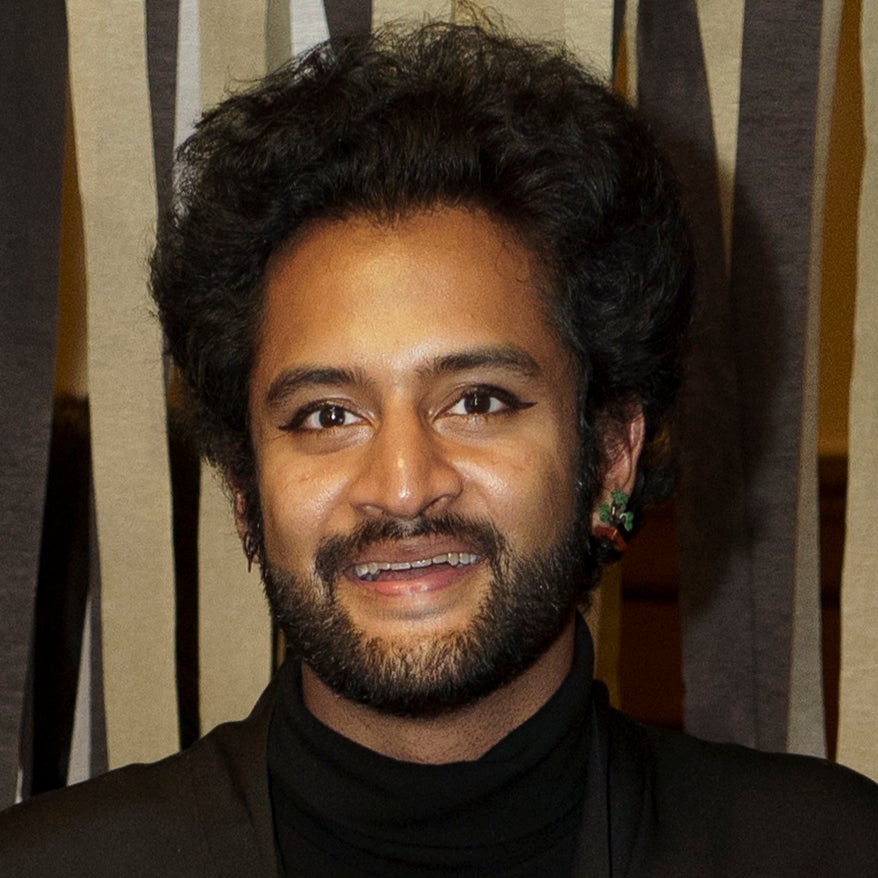
Credit: Jodi Hilton
Shashank Vura ‘24 came face to face with the impacts of climate change and biodiversity loss in 2017, when Hurricane Harvey struck his hometown of Houston, Texas. Amid the devastation, extreme flooding exacerbated by the city’s draining of local wetlands drove many of his neighbors from their homes. This moment was a pivotal one for Vura; he’d always harbored an interest in ecological issues, but the hurricane brought the planetary crisis right to his doorstep. He decided then to devote his career toward improving the Earth’s health.
He dove into environmental protection as an intern for U.S. Senator Tammy Duckworth of Illinois, writing legislative recommendations on proposals before the Environment and Public Works Committee. Intrigued by this work, he narrowed his focus to environmental policy. Vura’s career brought him to Cornell’s Elephant Listening Project and the U.N. Environment Programme, but he sought to advance change more systematically. He decided it was time for his next step—law school.
By the time he arrived at Harvard Law School, Vura had a clear vision of how he’d like to work in environmental law.
“The hurricane made me realize that these crises weren’t theoretical, but quite real.”
Shashank Vura ’24
The Emmett Environmental Law & Policy Clinic (ELPC) was a natural fit. In the fall of his 3L year, Vura spent a semester in the clinic working with the Northeast Section of the National Oceanic and Atmospheric Administration’s (NOAA) Office of the General Counsel (OGC). His projects varied in substance and scale, granting him invaluable hands-on experience in a wide array of environmental and natural resources matter law.
“I explored everything from shrimp fishery allocations in the Northwest Atlantic to Endangered Species Act safeguards for sea turtles in the Pacific,” Vura says. “While based in the New England and the Mid-Atlantic region, my portfolio had a great geographic breadth.”
Vura brought his classroom knowledge, including concepts from courses like International Environmental Law, Natural Resources Law, and Wildlife Law, to real-world projects. He wrote memoranda on aboriginal fishing rights, the Atlantic Coastal Fisheries Cooperative Management Act, reinitiation of Endangered Species Act formal consultations, and U.S. engagement with international regional fishery management organizations.
“The externship was an extraordinary opportunity to discover all the substantive areas which OGC handles in the Northeast,” Vura reflects. “I honed my legal research and writing skills, not only looking at statutes, regulations, and case law, but also focusing on pragmatic considerations regarding the rule of law. I assessed when the federal government has authority to act and when it should exercise that authority.”
Understanding the nuances of the attorney-client relationship as a government lawyer versus working for an environmental advocacy group was another revelation. Vura joined meetings with biologists from NOAA clients like the National Marine Fisheries Service. “The OGC’s role is to provide legal advice, saying ‘this is how much room you have to act.’ And then, ‘here’s what I recommend you should do within those bounds,'” Vura explains. “We explain the policy options on the table and any pragmatic concerns, but agency clients with scientific expertise remain the ultimate decisionmakers.”
Building mentorship relationships with NOAA attorneys and the clinic team’s experienced environmental law practitioners was a vital part of Vura’s experience. In addition to his direct supervisor, Northeast Section Chief Chip Lynch, he cites OGC attorneys Mark Capone, Deirdre Casey, and Sam Duggan as mentors.
“Professor Andrew Mergen offers a wealth of knowledge,” Vura says of the clinic director. “He brings 33 years of experience at the Department of Justice (DOJ), having litigated under virtually every natural resources statute in this country.”
“His main priority in the clinic is to set students up for careers in environmental law,” Vura states. He believes mentorship, not only from Professor Mergen but also clinical instructor Sommer Engels and clinical fellow Rosa Hayes, has been invaluable. “The clinic confirmed to me the importance of good mentorship, especially in shaping your early career.” The team has advised him on job opportunities, provided professional references, and provided targeted feedback on written work products mirroring practitioner tasks like appellate briefs.
To round out his environmental legal education, Vura also participated in the Animal Law & Policy Clinic (ALPC) during his 2L year. He observed strong synergies between the ELPC and the ALPC, developing complementary skill sets and approaching statutes like the Endangered Species Act from multiple angles. “The two fields are highly interconnected, so we are lucky to have two clinics doing this work,” he reflects. Vura notes that former ALPC Director Katherine Meyer co-litigated cases with Professor Mergen, while current Director Mary Hollingsworth was one of his colleagues at the DOJ.
While surveying today’s environmental challenges can feel daunting, Vura remains optimistic about the future. “Even when I receive bad news, I remember the dedicated people working tirelessly at places like NOAA to conserve marine resources and ensure they are sustainably managed,” he says. “That does fill me with optimism.”
Vura’s clinical experiences have equipped him with the tools and the ethos he will bring to his future endeavors: “The clinics confirmed that you can achieve progress, helping prevent mass extinction through the law. They also confirmed the breadth of professional options available to people in this space, whether you become a litigator or policymaker, internationally or domestically.”
“So much is possible. The clinical program has been instrumental in shaping my growth as an environmental law student and future attorney.”
Filed in: Clinical Spotlight
Tags: Class of 2024, Emmett Environmental Law & Policy Clinic